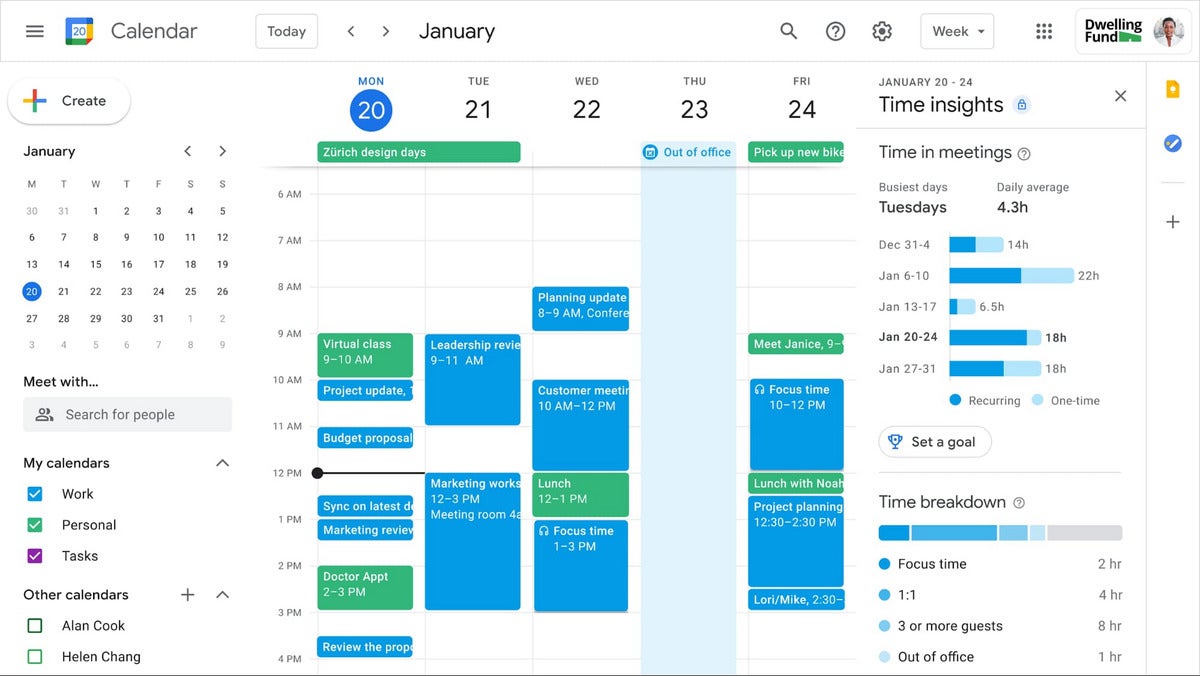
Google Workspace rolls away features for front-line workers
Google has introduced the Workspace tier for front-line careers such as for example retail, hospitality, and health care workers.
The business today also unveiled new features around time administration and productivity-tracking for the core Workspace – formerly G Suite – software.
The Workspace Frontline edition includes all the standard Workspace apps such as for example Gmail, Calendar, and Chat, in addition to advanced endpoint administration to secure employee cellular devices.
“We’ve also managed to get easier for business groups to build custom made AppSheet apps directly from Search engines Sheets and Drive in order that frontline workers may digitize and streamline their function, whether it’s collecting information in the industry, reporting safety risks, or even managing consumer requests,” Javier Soltero, vice president and general supervisor of Search engines Workspace, said in a post .
The new tier will undoubtedly be available in all the countries where Workspace happens to be sold and is because of start in early April.
Pricing for the brand new tier had not been available immediately; a Search engines spokesperson promised Frontline Employee edition pricing will be shared in “the arriving weeks.” (Computerworld furthermore asked for additional information on top features of the Frontline Employee edition but didn’t immediately receive comment.)
Google already offers usage of its app suite together with features such as for example advanced endpoint management within its Business In addition tier ($18 per consumer each month), and also Business Starter ($6 monthly), and Business Standard ($12 month) with usage of fewer functions and certain limitations on usage.
Front-line workers have generally been overlooked with regards to getting usage of digital tools. Nevertheless, that lack of interest has been shifting because the need for front-line roles is continuing to grow during the pandemic.
“With the growth in remote control work through the pandemic, there’s been a reputation of how critical these functions are, and many companies are now realizing they have to better connect these employees to the broader organisation – especially as their workers in offices are no more in the organization office,” said Angela Ashenden, a principal analyst at CCS Insight.
Search engines is not the initial productivity software program vendor to focus on tools toward make use of by front-line employees. Microsoft offers two Microsoft 365 add-ons for this function; Microsoft 365 F3 and F1, which price $2.25 and $8 per user every month, respectively. Microsoft in addition has developed many Teams functions which are targeted at deskless workers .
Likewise, Facebook announced an add-upon because of its Workplace app in 2019 that suits these roles.
“We’re seeing IT companies looking to have a more holistic method of how they assistance their employees, wherever they’re based, and there’s the scramble among tech suppliers to function as go-to solution because of this combined team,” Ashenden said. “To a big extent, Search engines is playing meet up with this focused offering, though it has already established success with enabling this combined band of employees through its existing licences.
Ashenden added that whilst Google provides yet to complete the full information on the Frontline Employee edition, it’s apt to be the cut-down edition of Workspace concentrating on central communication features together with Workspace security and administration.
 Search engines
Search engines
Google furthermore announced a new group of functions for Workspace to greatly help workers manage their working lifestyles. This consists of “segmentable working hrs” to let customers designate to colleagues if they are on the internet and designed for meetings; recurring out-of-office activities; a “focus time” function that limitations notifications during certain intervals; and location indicators that reveal the full days a worker is working at home.
There’s also a “period insights” feature that provides workers metrics on what they’re spending their period, such as hours allocated to focus time, amount of time in meetings, and out from the working office. Search engines said the given info is viewable by workers only, not their managers.
